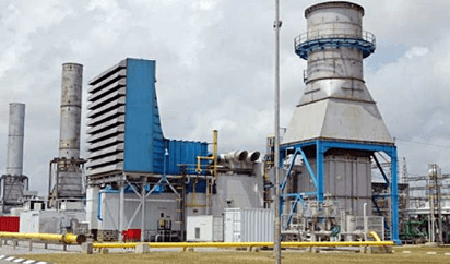Photo caption: Power generation plant
The Presidency has begun internal approval processes to resolve the N2tn legacy debt owed to electricity generation companies before the end of the coming quarter, as part of efforts to stabilise Nigeria’s power sector.
A representative of the Special Adviser to the President on Energy, Eriye Onagoruwa, disclosed this on Monday at the second Nigerian Electricity Supply Industry Stakeholders Meeting of 2025, hosted by the Nigerian Electricity Regulatory Commission.
Onagoruwa said the Presidency recognises the urgency of addressing the debt overhang, which has strained GenCos and impeded electricity supply nationwide. She revealed that alternative debt instruments are being explored due to the Federal Government’s current fiscal constraints.
“We are empathetic to what GenCos are facing,” she said. “We are exploring alternative debt instruments, and I can confirm that both the Coordinating Minister of the Economy and the Debt Management Office are aligned with this effort. Internal approvals are currently underway.”
While she did not give a definitive timeline, Onagoruwa expressed hope that a clear update would be available before the next quarterly NESI Stakeholders Meeting, suggesting progress could be announced within the next three months.
“I hope by the next NESI meeting, I will be able to share a clear update,” she said.
The PUNCH earlier reported that Gencos had issued a warning to the Federal Government over the continued accumulation of debts now totalling over N4tn.
The Senate Committee on Power recently raised concerns over the liquidity crisis bedevilling the power sector, lamenting that the tariff shortfalls in the industry indicated that the government owes about N200bn to electricity-generating companies every month.
The committee disclosed that since this year, the government has not paid the power producers, and that this has raised the debt to about N800bn.
The meeting brought together regulators, operators, and other key actors in the electricity value chain to address persistent bottlenecks and chart a course for ongoing sector reforms.
Key items on the agenda included the widening metering gap, the Presidential Metering Initiative, the proposed Meter Asset Fund, and the establishment of the Nigerian Independent System Operator. The transition to a multi-tier electricity market and the role of newly created State Electricity Regulatory Commissions were also discussed.
The acting Managing Director of the Nigerian Bulk Electricity Trading Plc, John Akinnawo, cautioned against the risk of market fragmentation amid decentralisation moves triggered by the Electricity Act 2023. He urged NISO to take the lead in ensuring policy and operational harmonisation.
NISO’s Managing Director, Abdu Mohammed Bello, presented an in-depth briefing on the agency’s vision, mission, and core functions. He highlighted its role in improving transparency, system coordination, and operational stability in the evolving electricity market.
Stakeholders at the meeting welcomed the Presidency’s intervention on the GenCo debt and expressed optimism that the combined reforms would help reposition Nigeria’s electricity supply industry for long-term sustainability.
With sector-wide reforms in motion and a promise of clarity in the coming quarter, all eyes are now on the Presidency’s next steps in resolving the long-standing financial liabilities.



